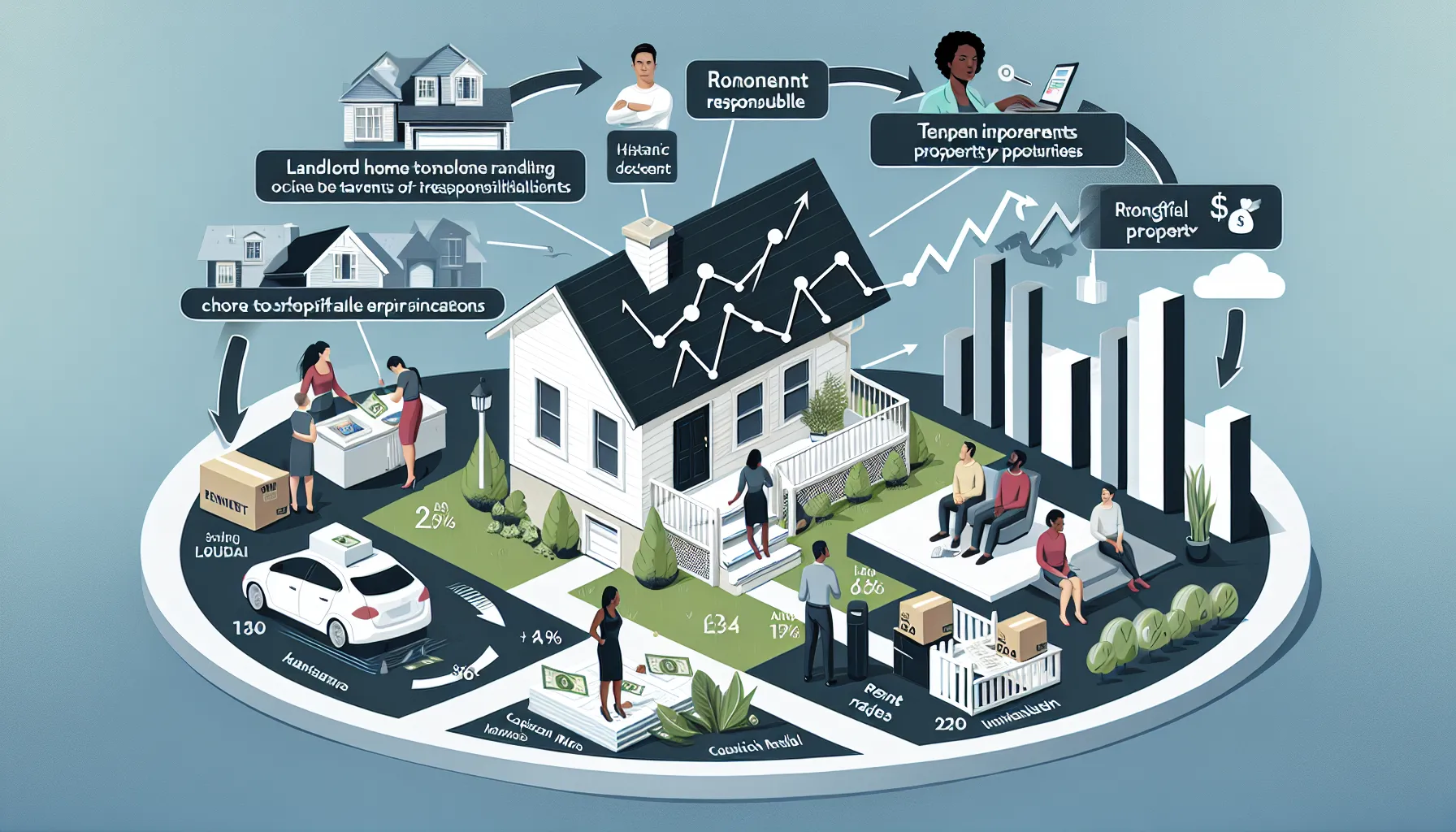Turning Your Home Into a Rental and Buying a New Property: The Unseen Pros and Cons

Ever thought about turning your primary residence into a rental? Many homeowners in Georgia are exploring this option, especially with property prices soaring. But is it really as beneficial as it seems? Let’s dive into the pros and cons of changing your main residence to a buy-to-let and purchasing a new property. Along the way, we’ll sprinkle in some insights on how AnySqft’s AI-driven platform eases the process.
Why Consider Turning Your Home into a Rental?
1. Extra Income Potential
Renting out your home can generate a steady income stream. With Georgia’s bustling property market, you can capitalize on the demand for rental properties. This additional income can help offset your new mortgage or fund other investments.
2. Property Appreciation
Holding onto your property means you might benefit from future appreciation. As the real estate market in Georgia continues to grow, so does the potential value of your home. Is this the golden ticket to wealth?
3. Tax Benefits
Rental properties come with enticing tax advantages. You can deduct expenses like property management fees, mortgage interest, and maintenance costs. These deductions can lead to substantial savings.
The Cons of Renting Out Your Home
1. Landlord Responsibilities
Becoming a landlord isn’t for everyone. Are you ready to handle tenant complaints, repairs, and late-night emergencies? It’s a commitment that requires time and patience.
2. Potential for Vacancies
What if your property sits empty? Vacancies mean no rental income, turning your once-profitable venture into a financial burden. Always consider the demand in your area before making a decision.
3. Legal and Financial Complexities
Navigating the legal landscape of rental properties can be daunting. From lease agreements to eviction processes, it’s crucial to understand your responsibilities. Plus, you might face higher interest rates on refinancing for an investment mortgage.
Buying a New Property: What to Consider
1. Finding the Right Location
Location is key. Whether you’re looking for a family home or an investment property, the right neighborhood can make all the difference. Look for areas with growth potential and a strong rental market.
2. Financing Your New Home
Securing a mortgage for a second property can be challenging. Lenders may require a larger down payment or charge higher interest rates. Ensure your finances are in order before taking the plunge.
3. Balancing Investments
Owning multiple properties diversifies your investment portfolio. But are you spreading yourself too thin? It’s essential to balance your investments and not overextend financially.
How AnySqft Can Help
With AnySqft, you gain access to an AI-driven platform that simplifies buying and selling properties. This innovative tool analyzes market trends, connects you with top agents, and offers personalized recommendations. Think of it as your real estate guardian angel, guiding you through every step of the process.
Conclusion: Weighing the Options
Changing your main residence to a buy-to-let and buying new property offers both opportunities and challenges. The decision hinges on your personal circumstances, market conditions, and financial goals. Are you ready to embrace the landlord life, or is selling your home a more lucrative option?
In any case, ensure you have a solid plan and access to reliable resources like AnySqft to navigate the complexities of real estate. Remember, the right decision today can lead to a prosperous tomorrow.
In conclusion, whether you decide to rent out your current home or sell it to buy another, understanding the full scope of each option is crucial. The best choice varies from person to person, so take the time to evaluate your priorities and consult experts when needed.
Changing Main Residence to Buy-to-Let and Buying New Property
Considering changing your main residence to a buy-to-let while purchasing a new property? Here’s what you need to know:
Pros:
- Extra Income: Renting out your home can generate steady cash flow.
- Property Appreciation: Benefit from future value increases in your rental property.
- Tax Deductions: Expenses like mortgage interest and repairs are deductible.
Cons:
- Landlord Responsibilities: Managing tenants requires time and effort.
- Potential Vacancies: Empty periods can lead to lost income.
- Financing Challenges: Higher interest rates may apply for investment properties.
To navigate these complexities seamlessly, use AnySqft. With its AI-driven platform, you can easily analyze market trends and make informed decisions.
